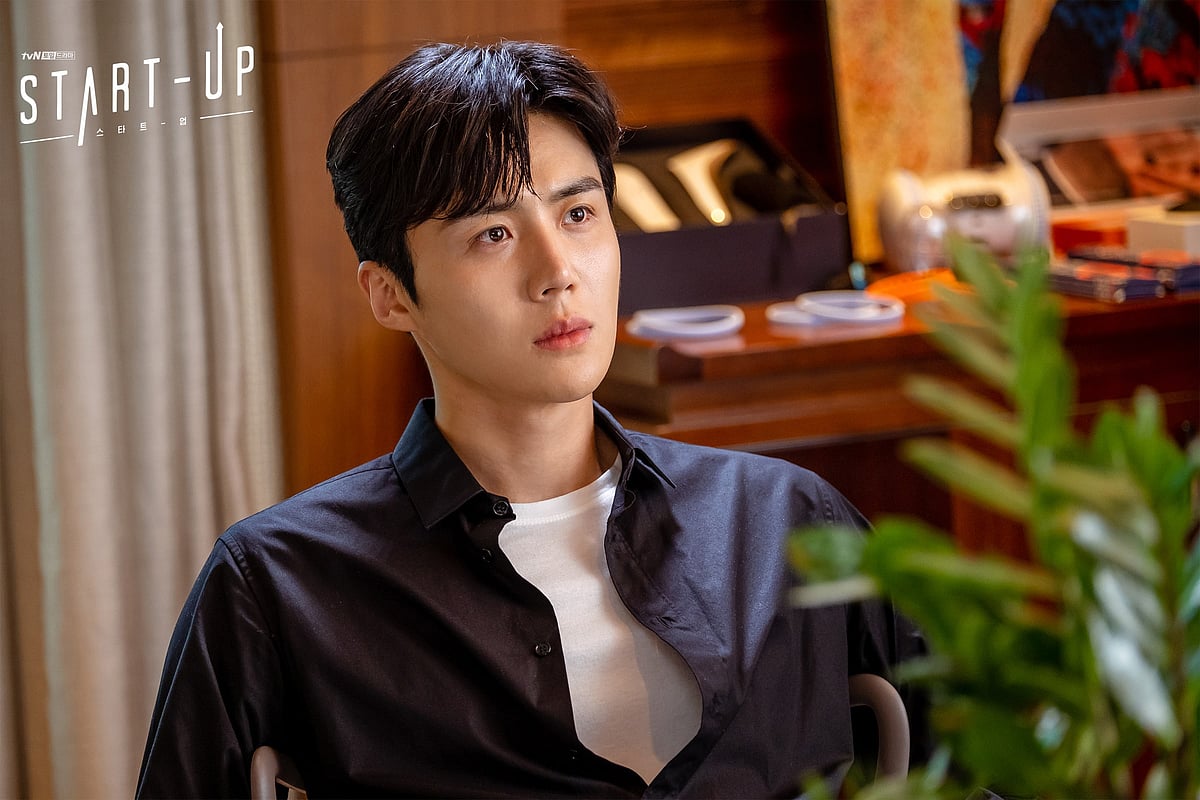K-Drama Rewind, Start-Up: How Kim Seon-ho’s quiet heartbreak became the show’s tender, piercing core
Start-Up is a drama set in the bustling, busy world of entrepreneurship

A heartbroken grandmother asks a little boy to write letters to her granddaughter in the wake of her father’s death. And he does. There’s comfort, solace in every world to sooth the raw edges of grief. It slowly sees her through the storm, when stinging pain melts into a quiet ache. She reads them by cherry blossoms.
That, is one of the most piercing storylines of Start-Up, a bustling Korean show, that, on the surface, focuses on the ruthless and relentless world of entrepreneurship. But beneath the talk of apps, funding, and pitches lies something more human: The fear of inadequacy, the confusion on whether to act on impulse or calculation, and the romanticisation of ambition: It all ties into understanding what an entrepreneur really means. And these conflicting emotions are simmering in Korea’s fictional Silicon Valley counter-part: Sandbox.
The story revolves around Bae Suzy’s dreamy, earnest Dal-mi, an aspiring entrepreneur, who has dreams of becoming the next Steve Jobs. Her estranged sister, In-jae ( Kang Han-na), is just the opposite; cold, seemingly calculated, though she’s just as bruised. Dal-mi teams up with the shy, self-doubting Nam Do-san (Nam Joo-hyuk), believing he’s the one who wrote her childhood letters. The truth, however, belongs to another: Han Ji-pyeong (Kim Seon-ho), the successful but lonely investor who hid behind Do-san’s name.
Start-Up is about adulthood, just as much as it is about being an entrepreneur. Dal-mi's idealism reflects in her line 'Let’s just sail ahead without a map', which captures the intoxicating early phase of any dream.
It’s one of the most well-shot scenes in the show, as the two stand on the rooftop against a sunset and decide to make a planning decision that will cost them dearly.
But they don’t see it yet: They’re caught up in the romance of it all. In the midst of reeling back from the precipice that all the characters do at several times: There are other complex human emotions to deal with, including addressing the reality of the letters, Ji-pyeong’s own suppressed feelings, and finally, the non-linear path to overcoming one’s own shortcomings.
One of the best qualities about the show, is that while romance isn’t supposed to the main storyline: It exists everywhere, and not just in the conventional sense of the term: But romance for life, a difficult career, and the understanding of self-love and acceptance. It echoes in what a nervous Nam Do-san, battling with raging inferiority complex and rejection, asks Dal-mi years later, “Who do you like me?” And she simply says, “Because, I just do.”
If there are lessons on romance, there are brutal lessons on heartbreak too, especially for Ji-pyeong, who probably brought new definition to second-lead syndrome. Till date, fans have never forgiven the show for its ending: The real heartbeat of the show was the letters.
But, that's the heartbreak of it all. Letting go of idealism, dreams and romance of 'what could be' and realising, what just is.
Start-Up is packed with substance and storylines that are all neatly tied together. It’s a strong watch. It's to remind you, that every dreamer does deserve a second chance.
Network Links
GN StoreDownload our app
© Al Nisr Publishing LLC 2026. All rights reserved.